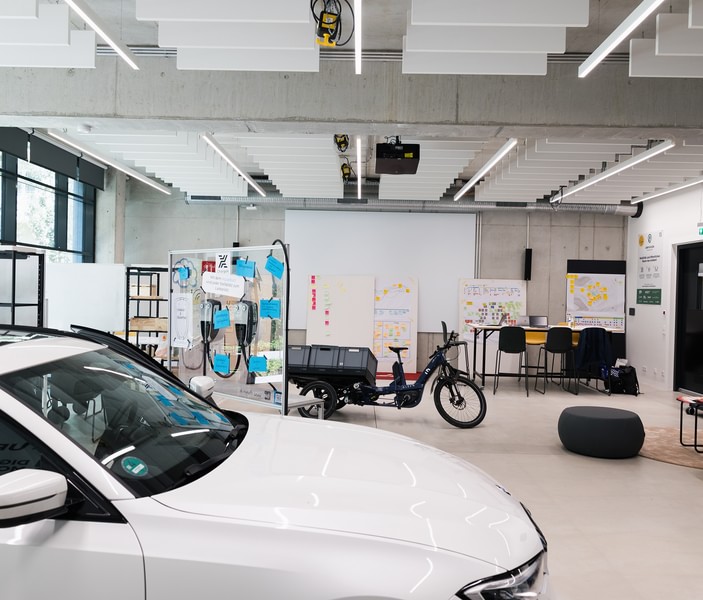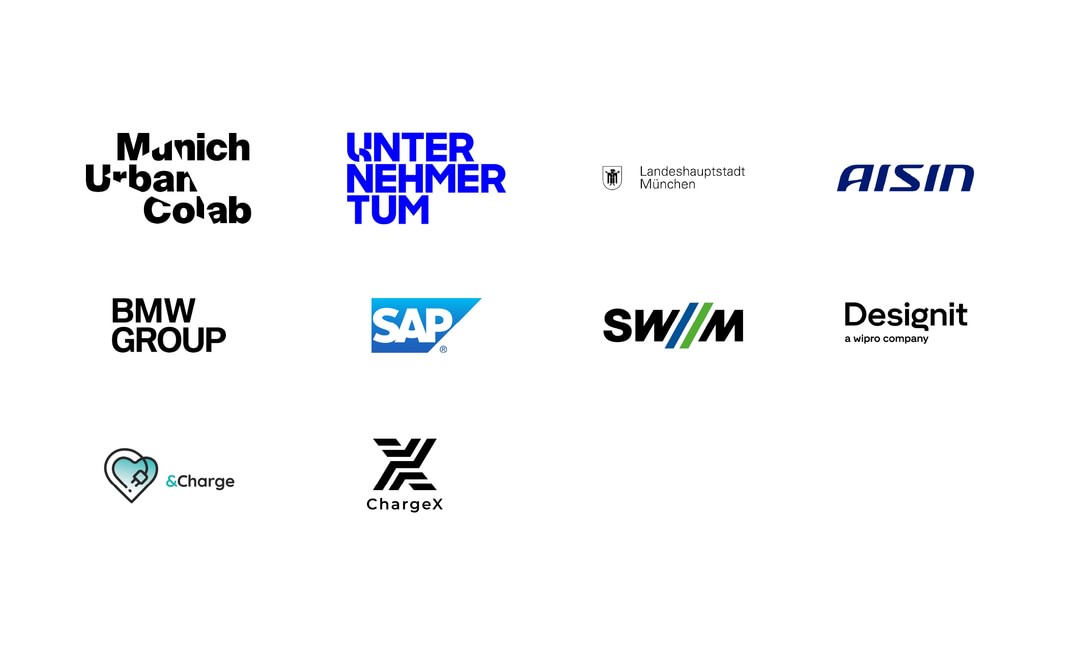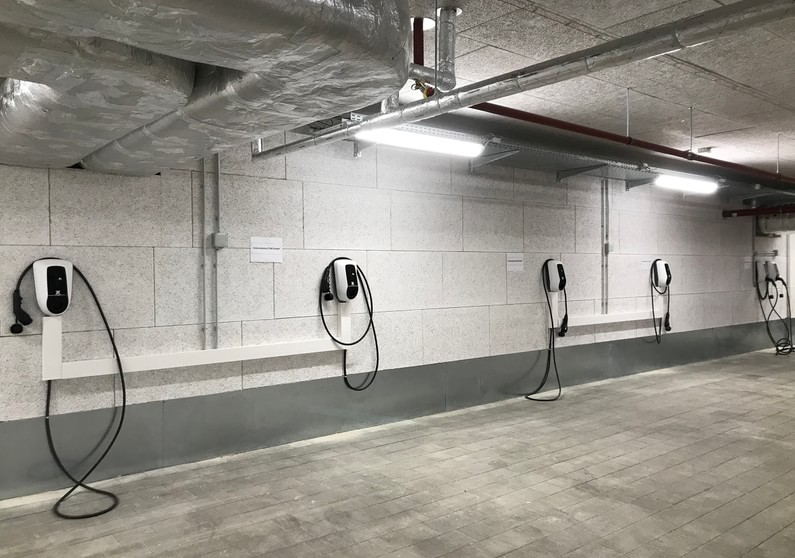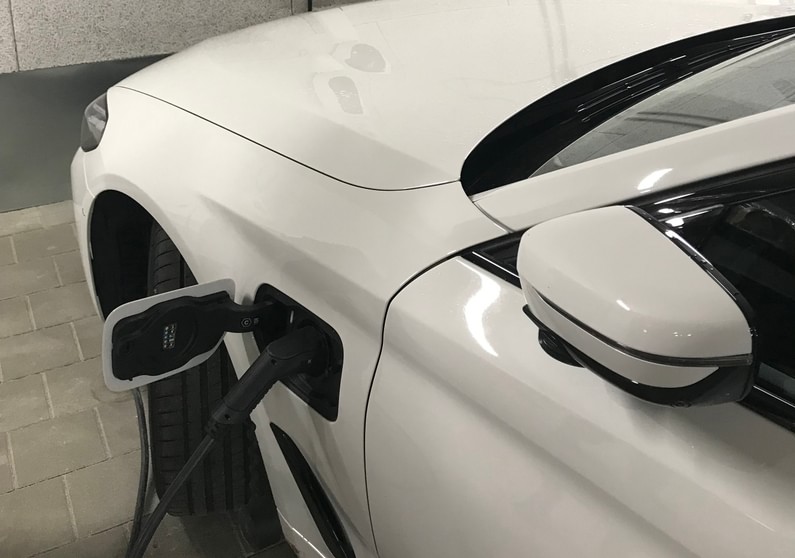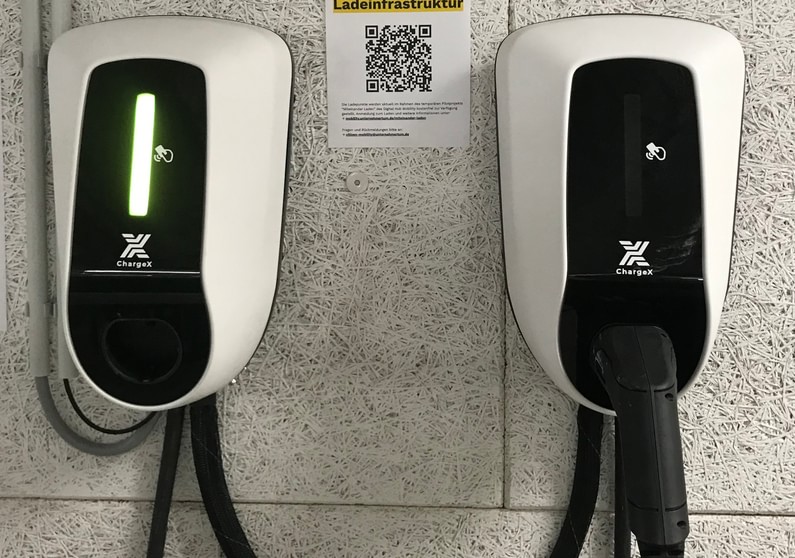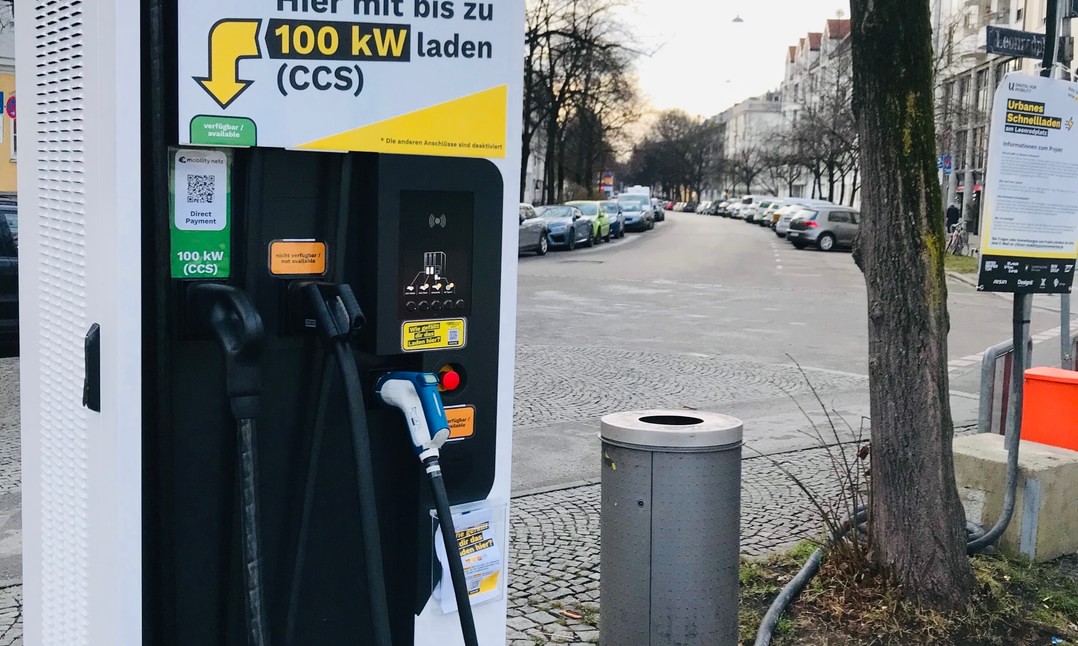Inconvenient Hurdles with Charging
Unfortunately, charging is a real "roadblock" on our way to user-friendly urban e-mobility and widespread adoption. Among others, these are the reasons:
- There are too few charging stations.
The number of electric cars in cities is rising, but charging stations aren’t keeping pace. Are more and more public charging points the solution? There is a chicken-and-egg problem with the expansion of charging infrastructure and more and more e-vehicles on the roads. - There is too little public space for charging points.
Unfortunately, this means that the expansion of charging infrastructure is challenging. Space efficiency is a core goal for transport in big cities like Munich. - Operating charging stations is often not economical.
At present, AC (alternating current) charging stations are often not profitable for those offering them. Sustainable business models are needed. - The availability of charging stations is not clear.
Many users do not have their own wall box, especially in the city center. In the case of public stations, it is often not clear whether they are occupied and when they will be free again. Could we increase user-friendliness and ensure less parking space/charging station search traffic by making reservations possible? - Charging can be time-consuming.
Both AC charging stations (about four hours charging time for 250 km range) and fast DC charging (about 30 minutes for the same range) require time to bridge if your office or home isn’t nearby. How can we use charging time wisely and make charging experiences pleasant?
Therefore, many conclude that e-charging is less attractive than refueling gas. Only the pioneers dare to make the switch to purely electric vehicles. Early adopters are more likely to accept issues with the public charging infrastructure and often have charging options at home or work.
In the future, urban users will be more reliant on public charging locations and need more options to get their batteries ready for the next drive. The goal: charging is easy and stations are nearby. The Digital Hub Mobility works with companies, cities, municipalities, start-ups, and citizens in the Munich Urban Colab to achieve just that.
